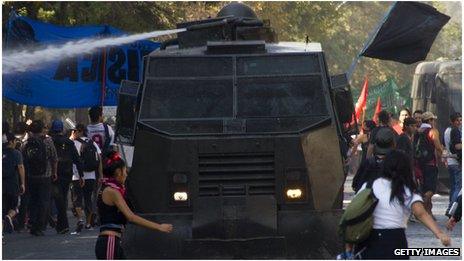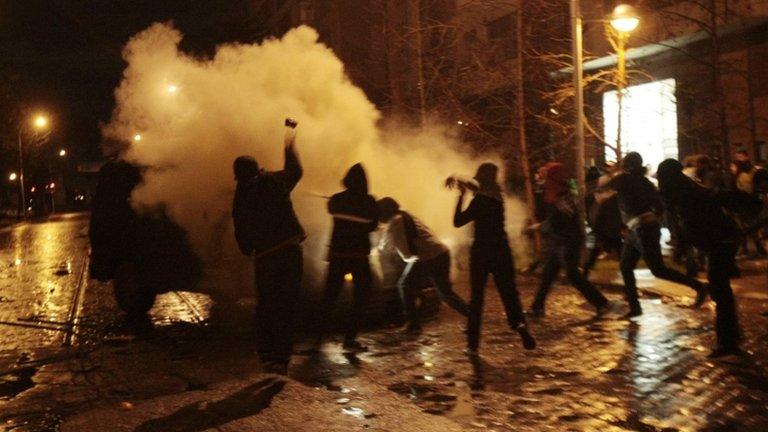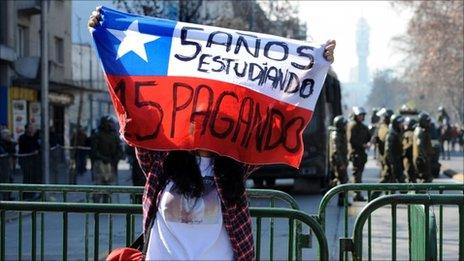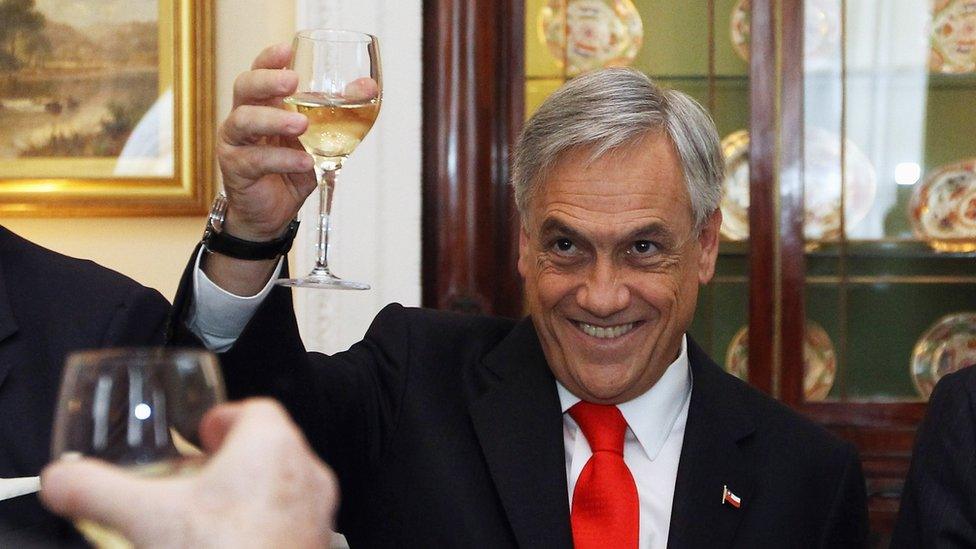Clashes as Chile students march for education reform
- Published

Students criticised the authorities for using what they considered excessive force to control the protest
Thousands of Chilean students have clashed with police on the streets of the capital, Santiago, during a protest calling for education reforms.
Some threw petrol bombs at the riot police, who responded with tear gas and water cannons.
This was the first demonstration of 2013 calling for high-quality and free education, but protests on the issue date back to 2011.
Authorities said 60 people were arrested and one policeman was injured.
The clashes occurred after authorities changed the agreed route, students say.
But the government said they only kept the march within the authorised course and blamed "vandals" for the violence.
'Generating violence'
"Again, a group of students feels they have the right to create disorder, damage property, interrupt the traffic and generate violence in Santiago," Interior Minister Andres Chadwick, told reporters.
A spokesman for the student union criticised the government for using "excessive repressive action".
Hundreds of riot police were ready before the start of the demonstration. Armoured vehicles with water cannons and dogs were deployed.
The campaign for educational reform is the biggest protest movement Chile has seen since the return to democracy in 1990.
It started with a wave of mass demonstrations in 2011, which carried on throughout 2012.
Students say Chile's education system, traditionally viewed as the best in Latin America, is profoundly unfair.
They say middle class students have access to some of the best schooling in Latin America, while the poor have to be content with under-funded state schools.
Last year, President Sebastian Pinera, Chile's first conservative leader for 20 years, announced tax reforms aimed at raising money to help fund the country's education system.
At the height of the protests, in 2011, the president's popularity was significantly affected.
- Published17 August 2012

- Published11 August 2011

- Published18 December 2017
